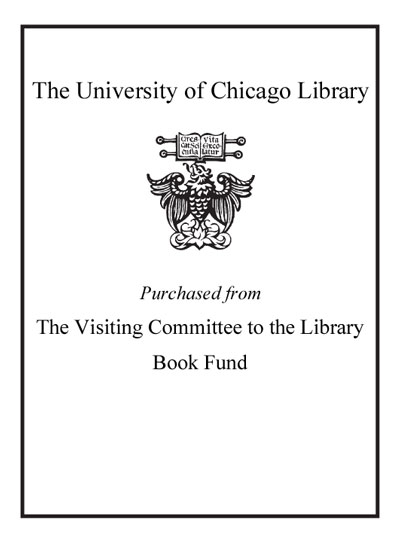Elements of a critical theory of justice /
Saved in:
| Author / Creator: | Pereira, Gustavo. |
|---|---|
| Imprint: | Baringstoke, Hampshire : Palgrave Macmillan, 2013. |
| Description: | viii, 246 p. ; 23 cm |
| Language: | English |
| Subject: | |
| Format: | Print Book |
| URL for this record: | http://pi.lib.uchicago.edu/1001/cat/bib/9125217 |
Table of Contents:
- Preface and Acknowledgements
- Introduction
- Part I. Models of Justice and Recognition
- I.1. Justice and Recognition: Two Models
- I.1.1. Fraser's approach
- I.1.2. Honneth's approach: struggle for recognition
- I.2. Evaluation of Fraser's and Honneth's Normative Approaches
- I.2.1. Limitations of Fraser's approach
- I.2.2. Limitations of Honneth's approach
- I.2.3. Towards a critical theory of justice
- Part II. Foundations for a Critical Theory of Justice and Reciprocal Recognition Autonomy
- II.1. Foundation and Application
- II.1.1. The renewal of critical theory
- II.1.2. Recognition and foundation
- II.1.3. Foundation and application
- II.2. Reciprocal Recognition Autonomy as a Decentred Autonomy
- II.2.1. Reciprocal recognition autonomy as a decentred autonomy
- II.2.2. Autonomy and self-reflection
- II.2.3. Differentiated autonomy and the requirements of practical contexts
- Part III. Scope, Metrics and Principles of Justice
- III.1. Conceptions of Justice and Reciprocal Recognition Autonomy
- III.1.1. Conceptions and metrics of justice
- III.1.2. Capabilities and primary goods: the best metric for a critical theory of justice
- III.2. Principles and Scope of Justice
- III.2.1. What a theory of social justice provides
- III.2.2. Principles of justice
- III.2.3. Choice and responsibility
- III.3. The Background of Application
- III.3.1. Reified concepts
- III.3.2. Multidimensional concepts: common understandings and poverty
- III.3.3. Pathological instrumental reason
- III.3.4. Egalitarian ethos
- Part IV. Democratic Ethical Life and Its Promotion
- IV.1. Democratic Ethical Life and Public Reason
- IV.1.1. Democratic ethical life
- IV.1.2. Public reason and civic equality
- IV.1.3. Public reason and deliberation
- IV.1.4. Dissent as virtuous behaviour
- IV.2. Narrative, Emotions and Democratic Ethical Life
- IV.2.1. The social function of narratives
- IV.2.2. Rational emotions
- IV.2.3. Educable emotions
- IV.2.4. Compassion and public reason
- Notes
- Index

